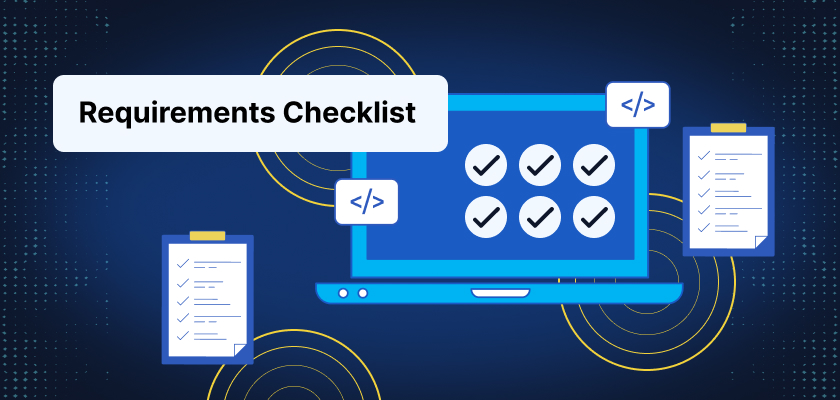
SOC 2 compliance requires more than good intentions, it requires well-documented processes, clearly defined controls, and consistent execution.
This checklist outlines the core requirements service providers must meet to align with SOC 2 standards. Whether you’re preparing internally or guiding clients, it’s designed to help MSPs, MSSPs, and security consultants implement and track compliance with confidence.
Download the SOC 2 Requirements Checklist (PDF)
Get the Checklist
Why These Requirements Matter
SOC 2 reports aren’t opinion-based, they’re evidence-based. Auditors assess your environment against clearly defined control objectives from the AICPA’s Trust Services Criteria (TSC).
Here’s why a requirements checklist is critical:
- Ensures no key controls or artifacts are missed
- Promotes consistent implementation across clients and teams
- Helps avoid exceptions or delays during fieldwork
- Streamlines audit prep and supports cleaner reports
Use this checklist to guide both initial readiness and ongoing maintenance.
Core SOC 2 Requirements: What Auditors Expect to See
SOC 2 requirements are organized by TSC category. Security is mandatory; the others are optional but often included based on business needs.
Security (Required for All Reports)
- Access control and role-based permissions
- Multi-factor authentication (MFA)
- Endpoint protection and patch management
- Change management documentation
- System and infrastructure monitoring
Availability
- Uptime tracking and SLA enforcement
- Disaster recovery and failover plans
- Business continuity planning and test records
- Infrastructure redundancy
Processing Integrity
- Accurate transaction handling
- Input validation and workflow logic
- Error detection and correction mechanisms
- Data processing logs and review procedures
Confidentiality
- Data classification and encryption (at rest and in transit)
- Least-privilege access enforcement
- Secure file transfer procedures
- Internal confidentiality policies
Privacy
- Consent management processes
- Data subject request handling (access, correction, deletion)
- Retention and disposal policies for personal information
- Privacy notice alignment and review documentation
Control Documentation & Audit Readiness
- Documented risk assessments and action plans
- Version-controlled policies and procedures
- Evidence linked to mapped controls
- Pre-audit communication checklist for CPA firms
Built-In SOC 2 Mapping with Cynomi’s vCISO Platform
Cynomi makes SOC 2 implementation easier by aligning your security controls directly to the AICPA Trust Services Criteria, without spreadsheets or guesswork.
Here’s how Cynomi helps:
- Automated Mapping to SOC 2 requirements across all five TSCs
- Gap Analysis based on client environments and selected scope
- Remediation Task Generation with ownership and deadlines
- Evidence Linking to mapped controls and audit outputs
- Pre-Built Policy Templates that meet core documentation standards
Get the Editable SOC 2 Requirements Checklist
This downloadable PDF helps your team or clients track and document every requirement with clarity.
- Editable format for internal or client-side use
- Covers all mandatory and optional Trust Services Criteria
- Built for MSPs, MSSPs, and security service providers
- Ideal for readiness assessments, audits, and internal training
Download the SOC 2 Requirements Checklist (PDF)
SOC 2 Requirements Checklist FAQs
No. Only Security is mandatory. You can include Availability, Confidentiality, Processing Integrity, and Privacy based on your business needs or client expectations.
Requirements are controls auditors expect to see aligned with selected TSCs. Recommendations are best practices but not always required to pass.
Yes. It’s designed to guide pre-audit readiness and serve as an internal control tracker throughout the audit process.
Yes. Cynomi’s platform maps client environments and policies directly to every SOC 2 requirement, and supports multiple frameworks beyond SOC 2.
At least annually, and whenever there are significant changes to systems, personnel, vendors, or compliance scope.